From Parlour to Jumbo: The beginner's guide to acoustic guitar body shapes (and which one is right for you)
Even acoustic guitars come in all shapes and sizes but our guide will help you pick your perfect partner

Want all the hottest music and gear news, reviews, deals, features and more, direct to your inbox? Sign up here.
You are now subscribed
Your newsletter sign-up was successful
If you're wishing to take up the guitar, the world of the electric – with all those makes and models and pedals and amps – can be more than a little daunting. You're far better off starting with the simple world of the acoustic therefore. But even there, things can get complicated…
Even without the complexities of electronics, what plugs into where and what extra gadgets do you need to get a sound of it, an acoustic guitar – for all its innate simplicity – still has plenty of features that contribute to its sound and playing action and all should be considered before you make a purchase.
In short, not all acoustic guitars are created equal, with facets such as their body shape and the wood that they're made of having both profound effects on their sound and your ability to play them.
But don't worry. While there's no hard and fast rules, our guide to acoustic guitar body shapes below will soon get you up to speed with what's out there, and which could be the ideal acoustic for you.
The Dreadnought
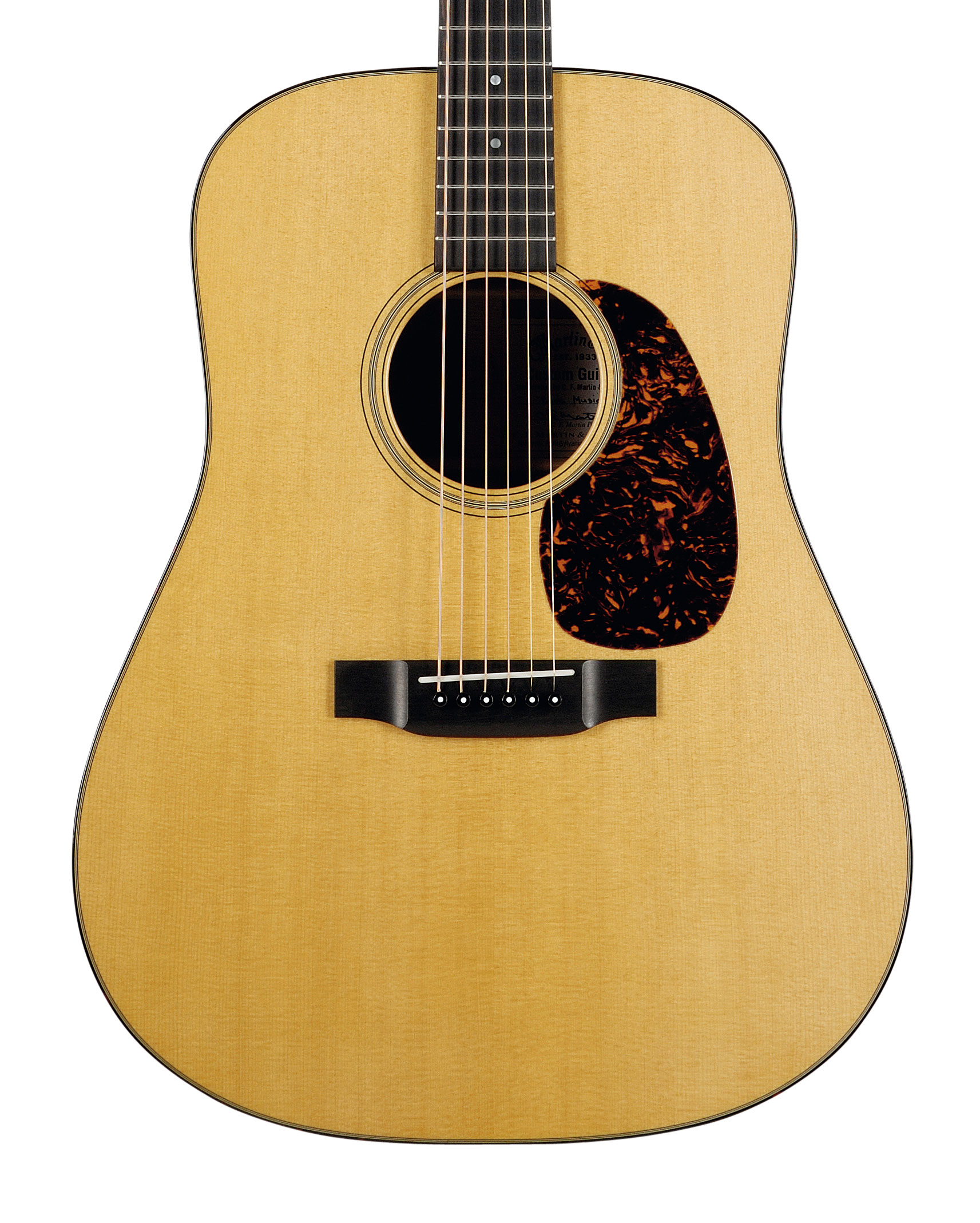
What is it? It's the most common shape of guitar out there and is probably immediately what you think of when you think 'acoustic guitar'.
Dreadnoughts are traditionally regarded as the perfect all-rounder because they offer a good balance of bottom end depth to their sound with sufficient highs too, allowing it to cover a lot of ground for players who want to try lots of different styles.
The model was initially introduced by Martin with more rounded shoulders at the top and a 12-fret body, but it changed to its famous form in 1934. Scale length is usually around 645mm (25.4") with body depth approx 121- 124mm (4.9"). Round-shoulder dreadnoughts are still available from some brands - including the iconic Gibson J-45.
Want all the hottest music and gear news, reviews, deals, features and more, direct to your inbox? Sign up here.
What is it good for? Strumming, picking – you name it!
The 000 / OM or Auditorium
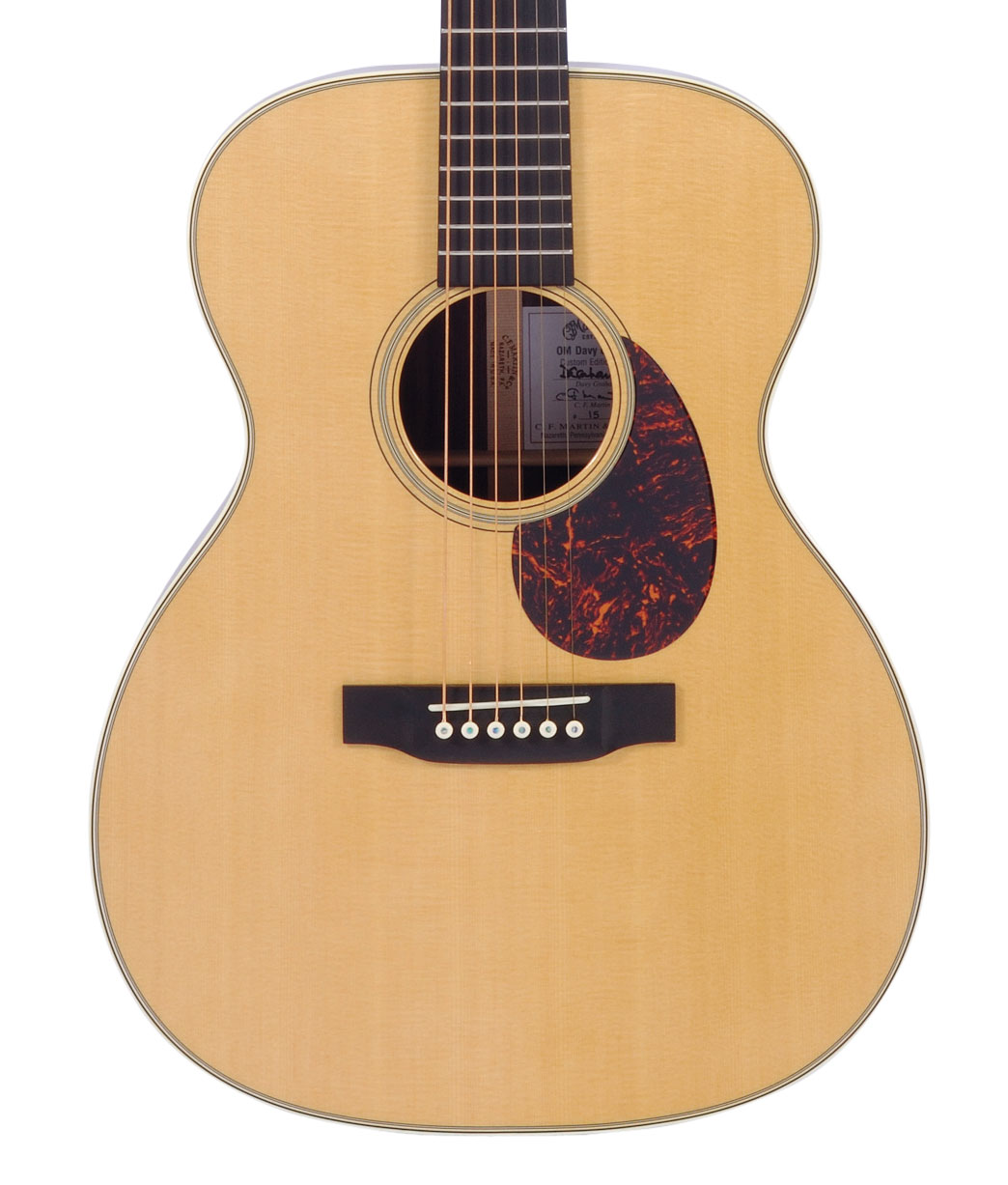
What is it? Shallower than a dreadnought at around 105mm (4.1") and narrower in width, the 000 (aka Auditorium) brings the body closer to the player meaning that it's altogether less bulky and easier to play if you're of slighter build.
As there’s not as much mass to curve your strumming arm around, it feels more intimate and comfortable for stage use too. Of course, that lack of body bulk means that you're losing some of the dreadnought low end, meaning that it’s popular with fingerpickers as as more mid sound cuts through.
The OM (orchestra model) has a longer scale length at around 645mm (25.4") compared to the 000’s shorter 632mm (24.9").
What is it good for? Fingerstyle and picking singer-guitarists. And if you simply don't want to wield a big dreadnought.
The Parlor
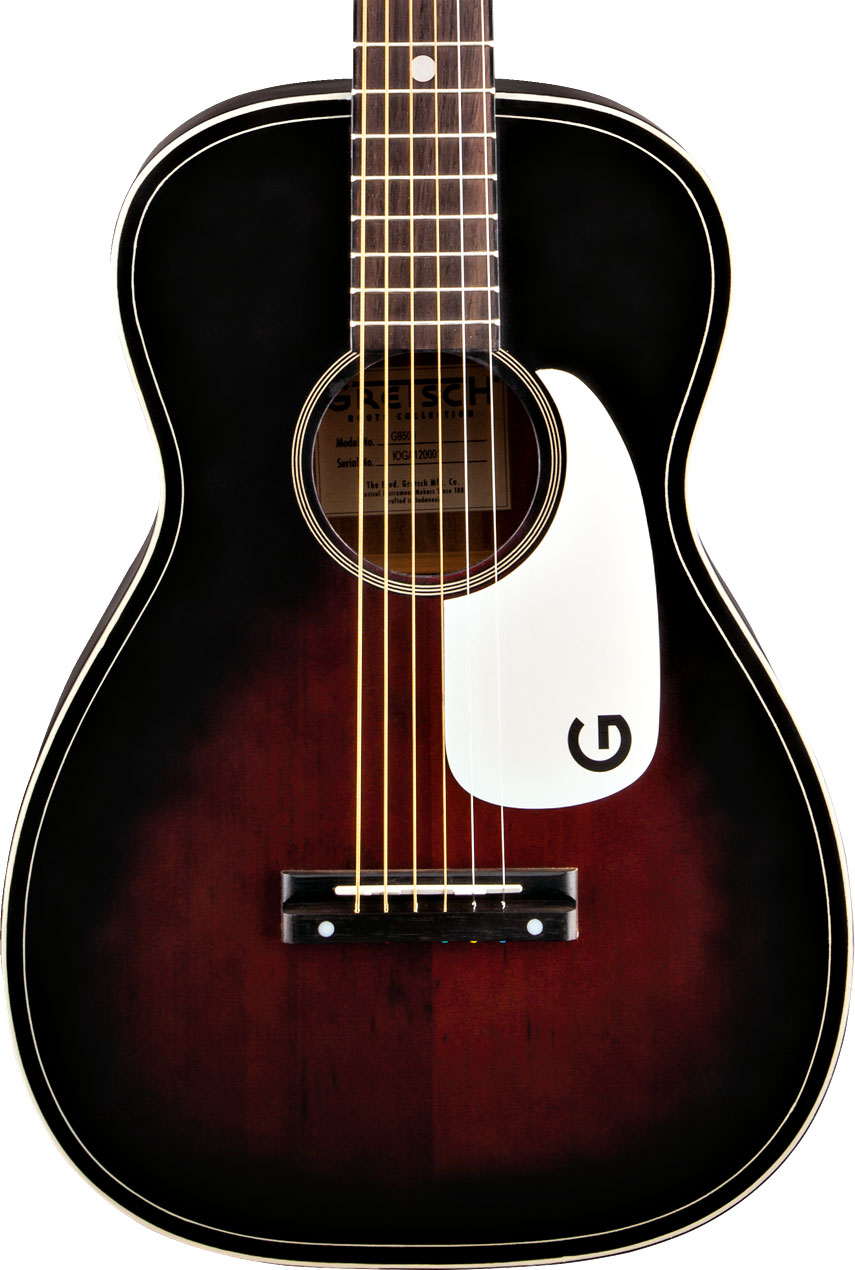
What is it? What exactly constitutes a parlour guitar varies across the many makes but, broadly speaking they're smaller, being both more portable and ideal for junior players.
Things get a little bit murky in terms of the lower bout widths as these can vary but some are based on the Martin 0 size and width around 355mm (14") - a relatively narrow lower bout - and a depth of around 100- 105mm (3.9-4 ").
The result is that a parlour's sound can become boxier and more prominent in the mids. The result can be a natural compression, and – simply put – if you’re after a more compact guitar, then this could be just the ticket.
What is it good for? Blues roots, smaller players and those who want more intimate dimensions.
The Grand Auditorium
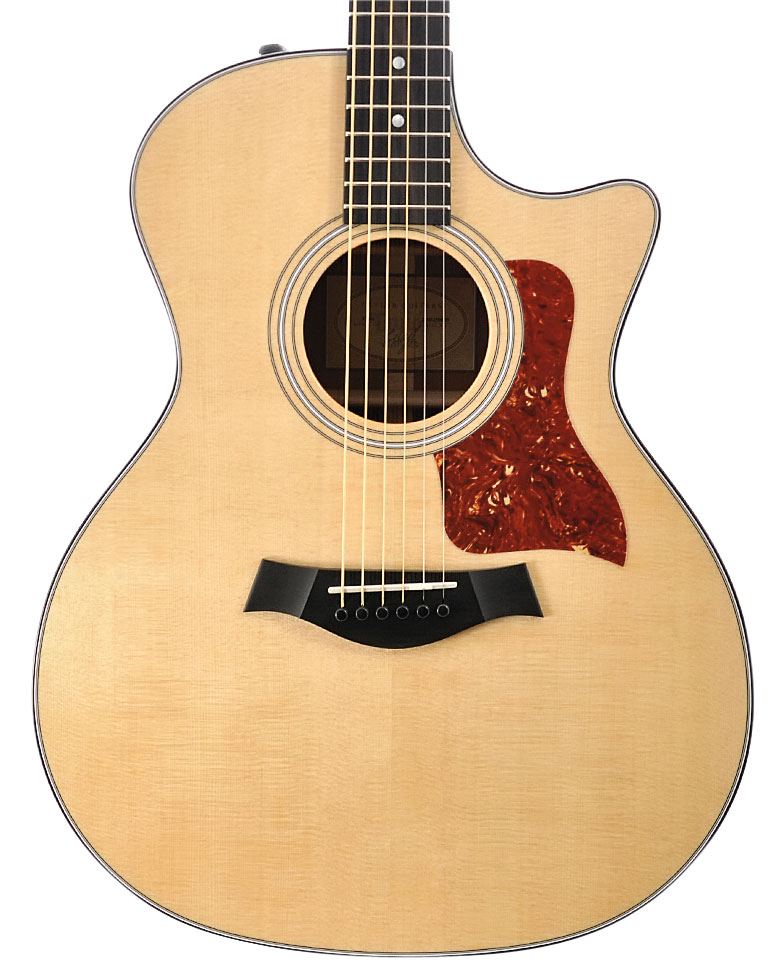
What is it? A great-looking all-rounder. If you like the look then this is the one for you!
Designed by Bob Taylor in 1994 to describe the Style 14 body, this Taylor shape is a classic. The Grand Auditorium is wider than a Martin-style dreadnought across the lower bout, nearly as deep but with a narrower waist.
Arguably that cut-away gives better access to the higher frets – if you've ever wished for electric-style access to those high notes, then this is the one for you – but mostly it's simply an alternative attractive cosmetic look for a great all-rounder.
What is it good for? Strumming, picking... you name it!
The Jumbo
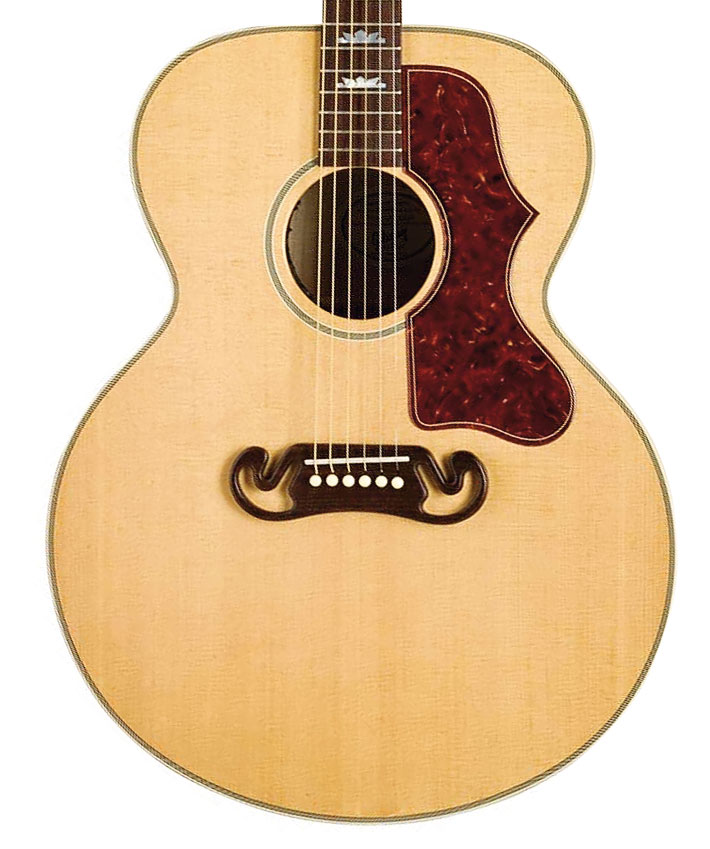
What is it? If you're after a specific, big, loud, resonant sound then – guess what – you need a bigger guitar.
Jumbos are the big boy of the pack. The jumbo is ideal for players who are performing acoustically sitting down, or are unphased by its larger dimensions. It’s traditionally great for meaty chord work but they are often surprisingly more balanced across the spectrum than dreadnoughts. And that bigger body is great for deep bottom end.
Confusingly you can even get smaller jumbos such as the Gibson J-185 that has a 406mm (16") body width in the lower bout compared to the original ‘super jumbo’ J-200’s 431mm (17"), favoured by The Beatles and Pete Townshend.
What is it good for? Strummers and bigger players who want a bigger sound.
Don't Miss
This is how different types of wood affect your acoustic guitar tone
Total Guitar is Europe's best-selling guitar magazine.
Every month we feature interviews with the biggest names and hottest new acts in guitar land, plus Guest Lessons from the stars.
Finally, our Rocked & Rated section is the place to go for reviews, round-ups and help setting up your guitars and gear.
Subscribe: http://bit.ly/totalguitar
You must confirm your public display name before commenting
Please logout and then login again, you will then be prompted to enter your display name.
